[Note: the interviews that followed have been edited and condensed for concision and clarity]
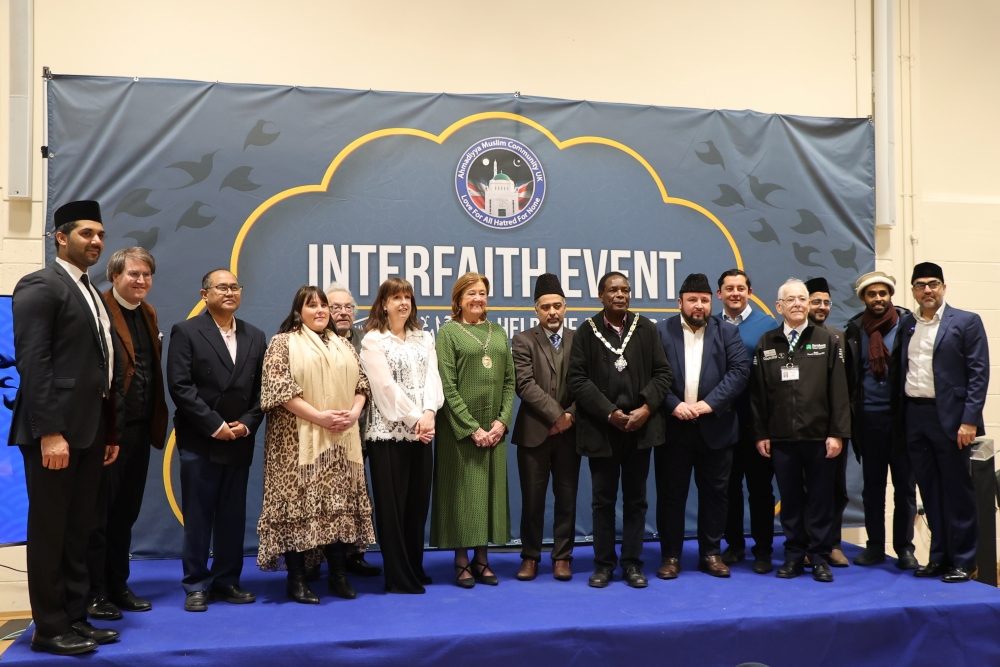
On Friday 21st February 2025, an interfaith event was organised by the Ahmadiyya Muslim Community in Islamabad, Tilford with help from the Ahmadiyya Muslim National Outreach Department UK. The main theme of the event was the topic of ‘peace’. Various faith leaders were invited, two of whom were guest speakers. After dinner was served, I interviewed both the guest speakers as well as a third faith leader who was in attendance. They were kind enough to agree to speak to me on a range of topics. Since the month of Ramadan is coming up, I made sure to ask each of them about fasting in particular. Here’s what they had to say:
Rohit Kumar Gurung (Hinduism)
Shiva Cultural and Community Centre, Aldershot
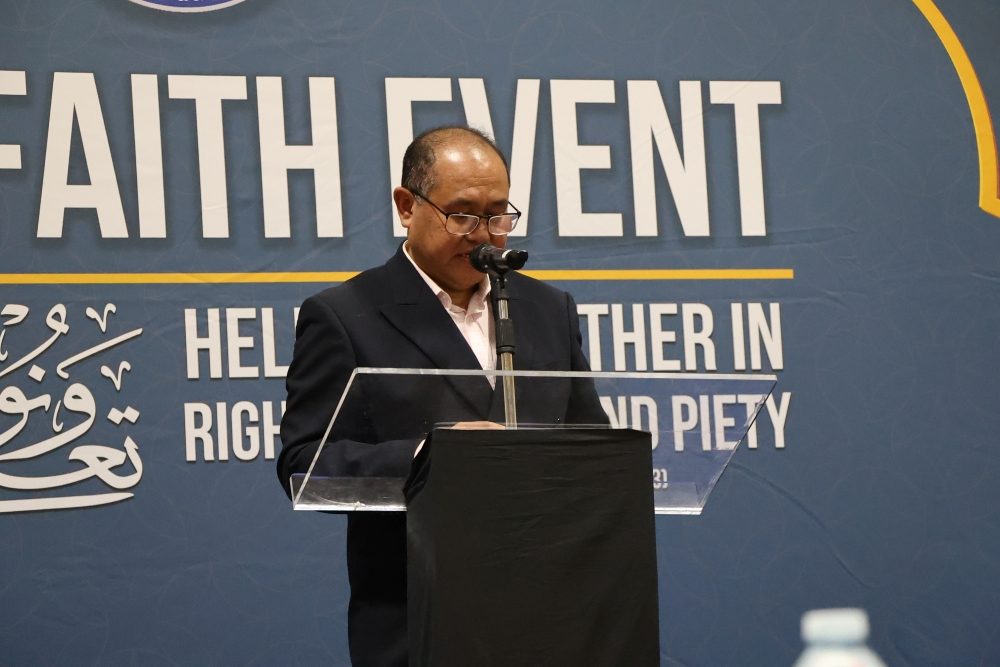
Is there any tradition of fasting in your religion?
Yes, we do. There are celebrations where we fast. We follow the lunar calendar; according to the full moon and the new moon. We’ve got a lot of deities: Lord Shiva, Brahma, Vishnu. These are three of the gods and there are also goddesses. So with different types of celebration we have fasting as well as having a feast and enjoying ourselves together. So, yeah, this takes place.
Please could you explain the concept of ahimsa (non-violence)?
The Mahabharata, the Ramayana and the Gita scriptures have defined this very well. Humankind needs mutual respect, this is the foundation of non-violence and peace.
Ben Cahill-Nicholls (Christianity)
Tilford Parish
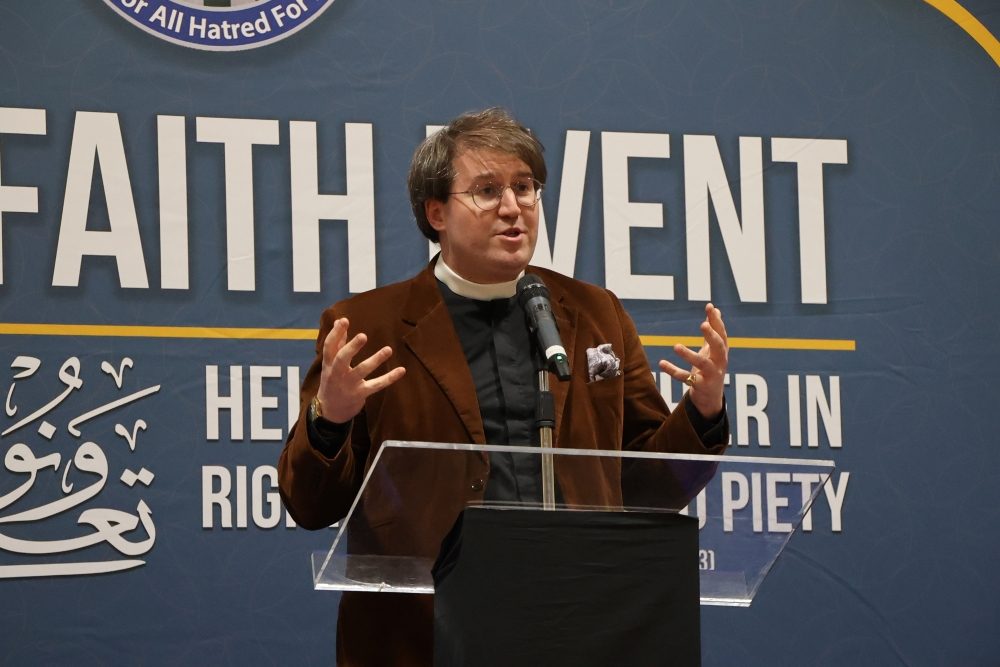
What does your religion mean to you?
As a priest, I suppose it’s everything. God is the first thought on my heart in the morning and the last thought on my heart at night. What is so wonderful about the event this evening is to be surrounded by friends of all different faiths who really have that same commitment of trying to live a life of God’s peace and grace. Everything that I am, I’m thankful to God and everything I’m trying to do is for Him.
Are there traditions of fasting in Christianity?
Yes, there are traditions of fasting in Christianity and also in Judaism. So I was brought up Jewish, in fact, and became Christian as a teenager. In Jewish observance, there is a festival called Yom Kippur, which is day of fasting, a day of penitence. Fasting is less now a part of structured Christianity but there are elements of fasting; some people would use the Lenten season to fast (we’re also about to approach the season of Lent). It’s time for fasting whether literal or symbolic; it might be literal fasting (in terms of food and drink), or it might be more around making changes in your life and finding ways to atone for your sins and to seek forgiveness.
Would you like to tell us a bit about your conversion to Christianity from Judaism?
My father was Christian by upbringing but Atheist in his beliefs and my mother was brought up Jewish and still practices her Jewish faith. I was Bar-Mitzvahed in the Progressive Jewish Movement at the age of 13 and then through my school years I just spent more time reading the bible and studying the scriptures and I came to the conclusion that what I was hearing in the New Testament was true and so at that point I was baptised and confirmed and became a Christian. But it’s really important to me still that I have that Jewish heritage. That’s a very, very important part of who I am. In my study in the vicarage, I have a menorah (Jewish candlesticks) on the shelf next to my bibles and my prayer-books and from time to time I will still pray Hebrew prayers that I learned as a child.
Khenpo Shenang Gyamjo (Buddhism)
Buddhist Community Centre, Aldershot
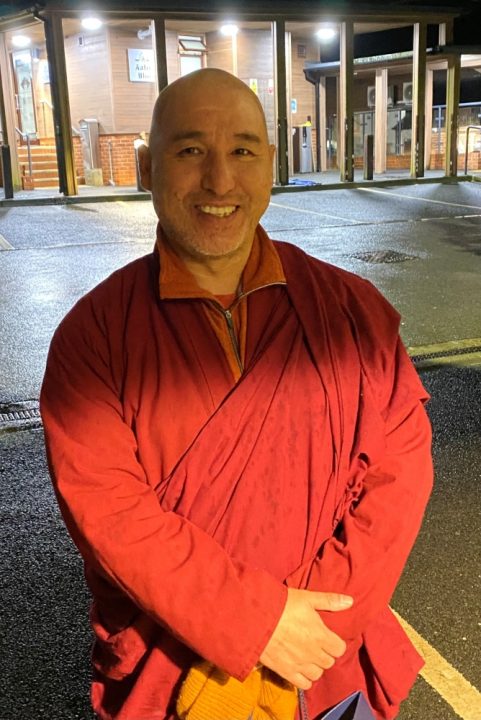
Do you have any fasting traditions in your religion?
Yes, starting in August, for 45 days. You’re only allowed one meal a day, and aside from that you can only drink liquid and that’s it. It lasts from noon one day until sunrise the next day. It takes place about once a year. Aside from that you can also choose to fast on any other day as well.
Do you have a language that is holy to you?
We have a few. There’s Pali and there’s Sanskrit. Now, increasingly, there’s also Tibetan.
Ibrahim Ikhlaf (Islam)
Ahmadiyya Muslim National Outreach Department UK
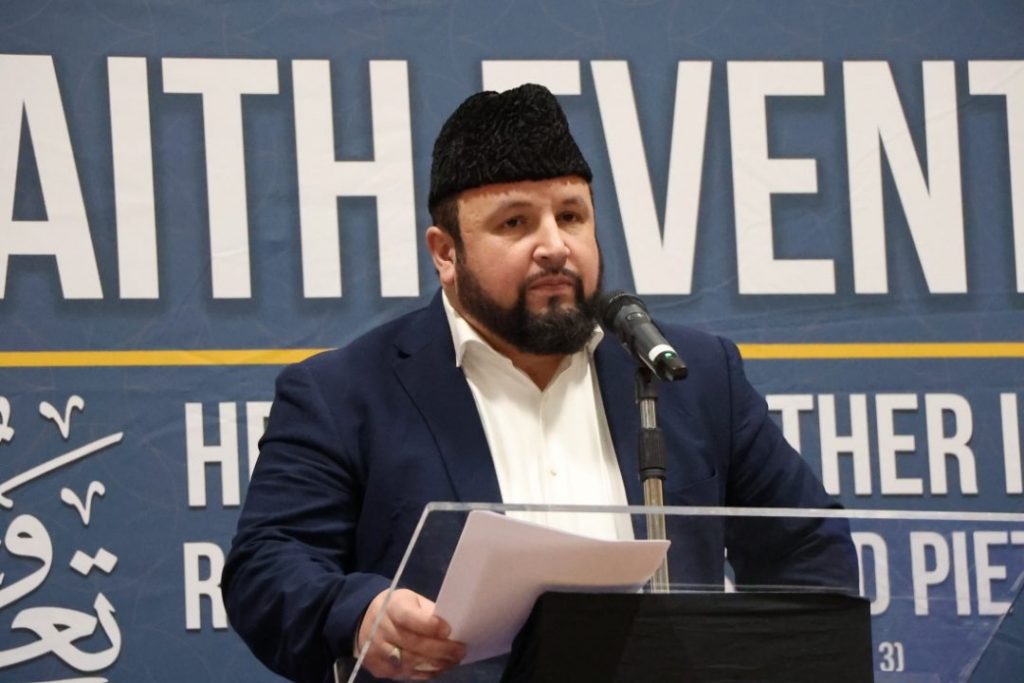
What is the spiritual significance of fasting in Islam?
These blessed days of Ramadan are being established for the sake of attaining the love & pleasure of Allah, to get rid of the bondage of sin and to bring about a lasting moral and spiritual change in our lives.
As a Muslim derives pleasure from delicious food, so will he, through fasting start to derive pleasure from weeping and crying in his worship.
Fasting helps us to reform ourselves and illuminate our hearts and souls, while meeting our Lord, the Creator.
The Promised Messiah (as), the founder of the Ahmadiyya Muslim Community stated: “Unfortunate is the person who is bestowed material bread and pays no attention to spiritual bread. Material bread strengthens the body, and spiritual bread sustains the soul and sharpens the spiritual faculties. Seek the grace of God, as all doors are opened by His grace”
Why is Ramadan a special month?
It was in the blessed month of Ramadan that the Creator of the Universe revealed Himself to the Holy Prophet (sa) through the divine revelation of the Holy Qur’an, also known as Al-Furqan – the distinguisher between truth and falsehood. It was sent to establish the truth and eradicate falsehood.
This divine guidance descended upon the earth at a time when humanity had suffered a spiritual death, and corruption had spread across land and sea.
Ramadan is the month for the illumination of the heart and soul. The illumination of the heart means that the gates of vision may be opened so that one may be able to behold God. In fact he will be able to meet His God, the ultimate purpose of life.

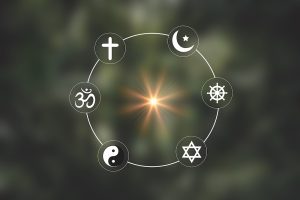
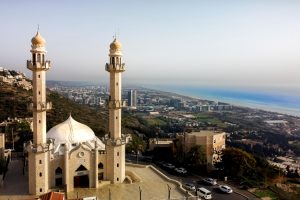
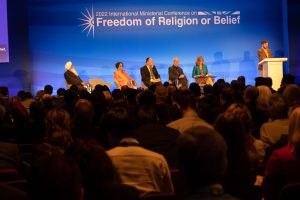
Add Comment